Confusion, obstacles raise voting concerns in Alabama, other states
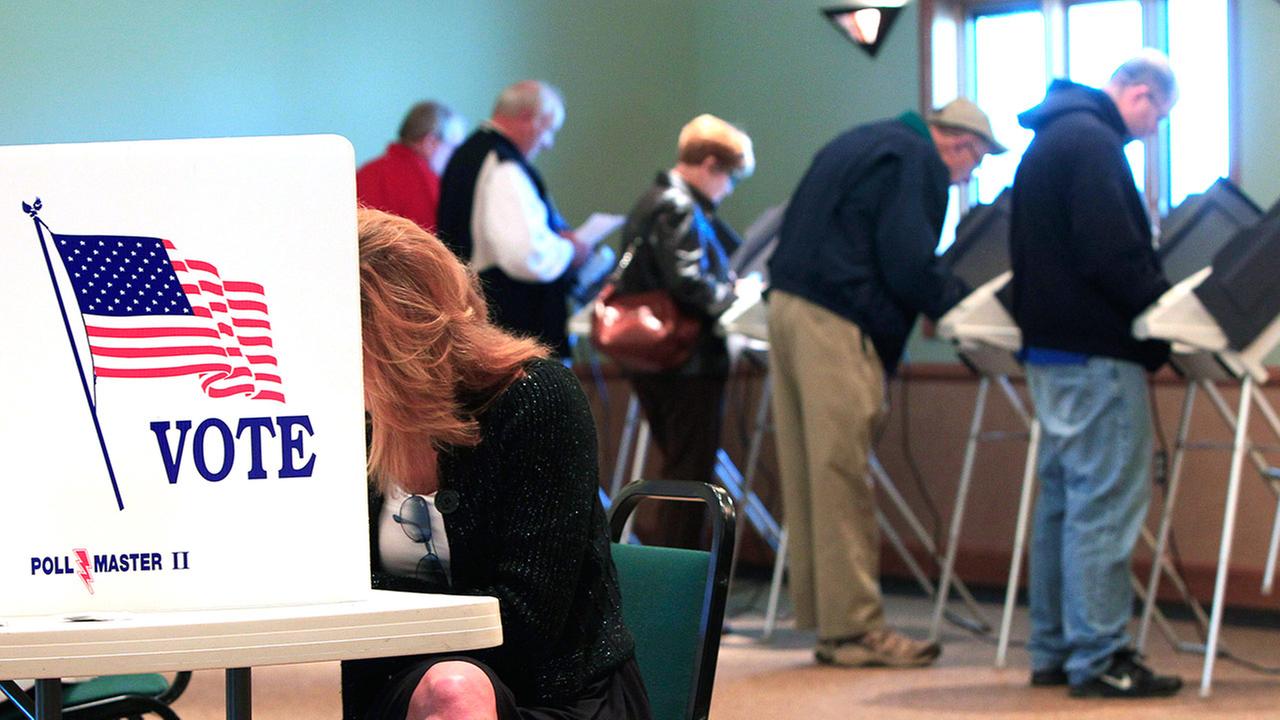
More than a dozen states have enacted tougher requirements for registering and voting since the U.S. Supreme Court overturned a key provision of the Voting Rights Act three years ago. That has led to confusion and claims that certain groups, mostly minorities who tend to vote with Democrats, are being disenfranchised. Adding to the uncertainty is a call by Republican presidential candidate Donald Trump for his supporters to monitor the polls on Tuesday for voter fraud and concerns by the federal government that hackers could try to disrupt the voting or vote-counting process. Here is a breakdown of some of the top voting concerns in key states: ALABAMA This is the first presidential election in Alabama in which voters will be asked for photo identification. A lawsuit challenging the voter ID law is pending, with trial set for next year. The plaintiffs have argued the law disenfranchises voters who are unable to obtain a state-issued ID. Last year, 31 state driver’s license offices – many in poor, minority communities – were closed because of budget concerns. Most were open one day a week and now they are open one to two days a month, with critics complaining the reduced hours remain a barrier. — ARIZONA Long lines led to frustration during Arizona’s March primary, when some voters in the Phoenix area waited hours to cast ballots after county election officials opened 60 polling stations – fewer than half what is typical. On Tuesday, Maricopa County, which includes Phoenix, plans on having more than 700 sites. Meanwhile, state Democrats filed a lawsuit alleging some Republicans are planning to intimidate voters at the polls. Arizona also was one of two states in which hackers over the summer attempted to breach voter registration systems. — FLORIDA During the 2012 presidential election, Florida had the longest average wait time among all states – 45 minutes, according to the Pew Charitable Trusts. Some of the most populous counties have since expanded early voting hours in the hopes of reducing long lines on Election Day. Meanwhile, legal battles continue over voter registration. After Hurricane Matthew raked Florida’s eastern coastline, Democrats sued to extend the deadline for voters to register. After a court order, about 107,000 people registered during the extension, but there was a concern that not all those applications would be processed before early voting began. A federal judge declined a request by Democrats to force election officials to allow those affected to vote even if their registration had yet to be verified, saying those affected could cast a provisional ballot that may be counted once their eligibility is confirmed. — GEORGIA The state’s process for handling voter registrations and maintaining its voter lists has been the subject of lawsuits this year. One pending lawsuit was filed against Secretary of State Brian Kemp over a policy allowing for people to be removed from state voter rolls for failing to vote in recent elections. Lawyers in the Georgia case said roughly 372,000 voters were purged between 2012 and 2014. Civil rights groups also sued Kemp’s office over a policy they said had prevented tens of thousands of residents from registering to vote and violated the federal Voting Rights Act. The policy rejected applicants whose identifying information did not exactly match state or federal databases. Kemp’s office informed the court in September that it had changed the policy. Meanwhile, long lines have been reported in some places since early voting began Oct. 17, including a four-hour wait in one metro Atlanta county on the first day. — INDIANA Indiana State Police have said they are investigating some voter registration applications submitted by Patriot Majority USA, a Washington, D.C.-based voter mobilization group with ties to the Democratic Party. The probe is examining whether some applications contained forged signatures or other possible elements of fraud. Attorneys for Patriot Majority have asked Justice Department’s Civil Rights division to look into whether the investigation is an attempt to suppress the votes of black residents. The group has run voter registration drives in 11 states in previous years. Separately, Secretary of State Connie Lawson, a Republican, warned recently of widespread voter registration fraud after her office found a heavier than usual number of changes to voter registration records. She later tempered those remarks to say that many of the thousands of changes simply could be residents rushing to correct their names or birth dates online ahead of the election. — KANSAS A Kansas court fight focused on whether a group of as many as 50,000 residents could vote because they did not submit citizenship documents, as required under state law, when registering at motor vehicle offices or with a federal form. Federal courts had previously ordered the state to count their votes in federal elections. The secretary of state’s office had sought to toss out their votes in state and local races, something a state judge has since blocked. — NEW YORK The state’s 2016 primary was marred by widespread reports of people in Brooklyn saying they were unable to vote. This happened after about 126,000 Brooklyn voters were removed from voter registration lists or deemed inactive between November 2015 and April of this year. Just days before the presidential election, a lawsuit was filed claiming the New York City Board of Elections had improperly removed voters from the rolls. — NORTH CAROLINA In 2013, Republican lawmakers in North Carolina passed a package of measures that required voters to show photo ID, reduced early voting and eliminated same-day registration during the early voting period. In July, a federal appeals court struck down several parts of the law, saying they “target African Americans with almost surgical precision.” Republican officials have said discrimination was not their intent. A divided U.S. Supreme Court declined in August to take up the case. After the ruling, Democrats raised alarm when the executive director of the state Republican Party emailed GOP activists suggesting each county election board’s Republicans work to limit early voting hours, curtail Sunday voting
U.S. Justice Department to dispatch fewer election observers
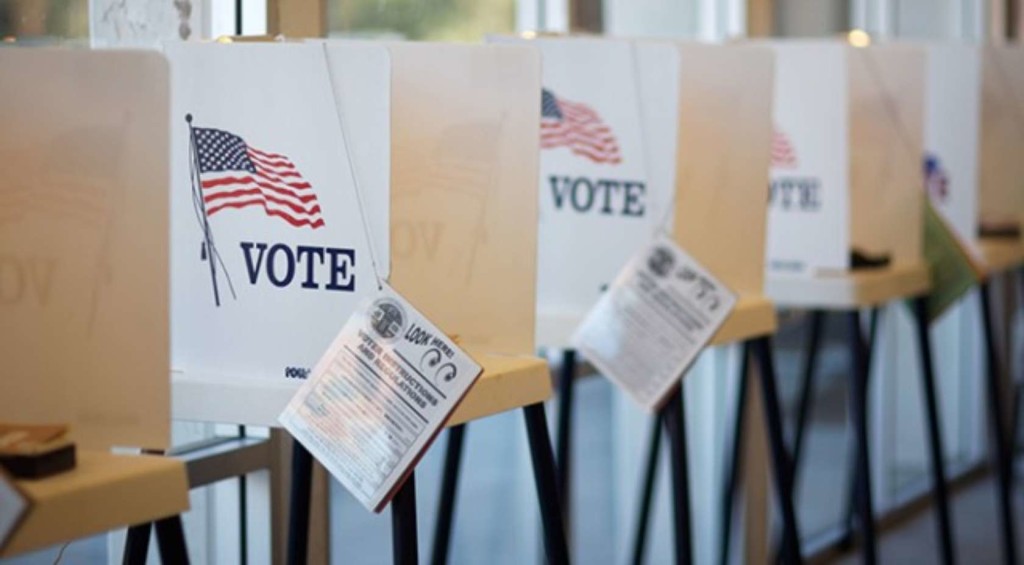
Justice Department officials are warning that they will be dispatching fewer specially trained election observers this year as a result of a Supreme Court opinion that gutted a key provision of the Voting Rights Act. The reduction is likely to diminish the department’s ability to detect voter intimidation and other potential problems at the polls. It comes as more than a dozen states have adopted new voting and registration rules, and as Republican candidate Donald Trump warns without evidence that the Nov. 8 election will be rigged and exhorts his followers to be vigilant against unspecified fraud. “It’s cause for concern,” said Dale Ho, director of the ACLU’s Voting Rights Project. “It’s hard to know ahead of time how significant a problem it’s going to be.” Justice Department officials said they still will dispatch hundreds of staffers to the polls and expect to have them in at least as many states as during the 2012 election, when they sent more than 780 to 23 states. “We have been doing everything we can through our monitoring program to be able to be as effective as we can be” in ensuring fair elections, said Vanita Gupta, head of the Justice Department’s Civil Rights Division. But, she said, there’s no way to “sugar coat” the impact of the court’s 2013 Shelby County v. Holder opinion, which invalidated a cornerstone of the 1965 voting law. In a video being released Wednesday, Attorney General Loretta Lynch said that though the court’s decision had reined in the Justice Department’s power, the government would work to “ensure that every voter can cast his or her ballot free of unlawful intimidation, discrimination, or obstruction.” The exact number of personnel will not be revealed until closer to Election Day. Most of the staffers will be so-called election monitors, who have less authority than federally trained election observers and rely on the cooperation of local officials to do their jobs. Unlike monitors, federal observers enjoy unfettered access inside polling places on Election Day and cannot be removed. The federal observer program has provided an important safeguard during previous elections, especially in places that tried to suppress the votes of blacks, Latinos and other minorities, said Kristen Clarke, president of the Lawyers’ Committee for Civil Rights Under Law. In past elections, for example, observers were sent to Greensboro, Alabama, after white election officials tried to deny access to black voters and to Pike County, Georgia, when an after-hours voter registration session was open to whites only. Observers and monitors have long been relied upon to defuse tensions, deter intimidation and encourage faith in the fairness of the electoral process. “They have the imprimatur of the federal government behind them that is giving them the rights and responsibilities to be in polling places,” said Nicole Austin-Hillery, director and counsel of the Washington, D.C., office of the Brennan Center for Justice. This year, as in past elections, staffers are responsible for making sure voters aren’t treated differently because of race or gender, that disabled voters are being accommodated and that voters who need them have bilingual election materials, Lynch said in her message. Still, this presidential election will be the first since the Shelby County opinion. That ruling threw out a requirement that jurisdictions with a history of voting discrimination, mostly in Southern states, seek approval from the federal government before changing the way they hold elections. The opinion opened the door to state law changes decried by voting rights advocates, including stringent new voter ID requirements. Beyond that, it nullified a formula the department had long relied on to allocate observers to jurisdictions nationwide. The department now says it will send observers only to the handful of jurisdictions that are subject to a federal court order authorizing their presence. Those include Alameda County in California; St. Landry Parish in Louisiana; Orange County in New York; and some smaller communities in Alaska. In 2012, by contrast, the department said it sent observers to 17 jurisdictions in 10 states. Benard Simelton, president of the Alabama State Conference of the NAACP, said he expected his group to try to compensate for any decline in observers by having its own monitors outside polling places. “If we see that they have a distressed look on their face, we will go up to them and specifically ask did they have problems voting,” he said. “Hopefully through that process, we will be able to take the information and channel it to the different organizations.” Republished with permission of the Associated Press.
Terri Sewell joins civil rights pioneer in voting rights roundtable discussion

With Election Day less than 50 days away, Alabama 7th District. U.S. Rep. Terri Sewell joined her House and Senate colleagues along with civil rights experts from across the country in a roundtable discussion on voting rights in America. Set in the LBJ Room in the U.S. Capitol Building, Alabama-native and current U.S. Congressman from Georgia, John Lewis lead the open-press discussion, which underscored the importance of having a fully functioning Supreme Court to hearing voting rights cases. Lewis, who worked closely with Martin Luther King Jr.He was the first speaker during the 50th anniversary of the Selma-to-Montgomery march last year, called on the Obama Administration to install federal election observers in polling stations across the United States. “We should ask for federal protection,” Lewis said. “The election can be stolen on Election Day at polling places.” In 2013, the U.S. Supreme Court struck down key provisions of the Voting Rights Act, which required certain states to obtain permission from federal authorities before changing their voting laws. Lewis continued, “This is our time to speak up and speak out to say that we want to see fair and open elections where everyone can participate.” Also participating in the roundtable was: Rep. G.K. Butterfield, Chair of the Congressional Black Caucus Rep. Jim Clyburn Rep. Judy Chu, Chair of the Congressional Asian Pacific American Caucus Senator Dick Durbin (D-IL) Senator Ben Cardin (D-MD) Senator Amy Klobuchar (D-MN) Senator Kirsten Gillibrand (D-NY) Senator Cory Booker (D-NJ) Nancy Zirkin, Leadership Conference on Civil and Human Rights Kristen Clarke, National Lawyers Committee Terry Ao Minnis, Asian Americans Advancing Justice Andrea Senteno, Mexican American Legal Defense and Educational Fund
Lawsuit seeks to balance Alabama’s all-white courts
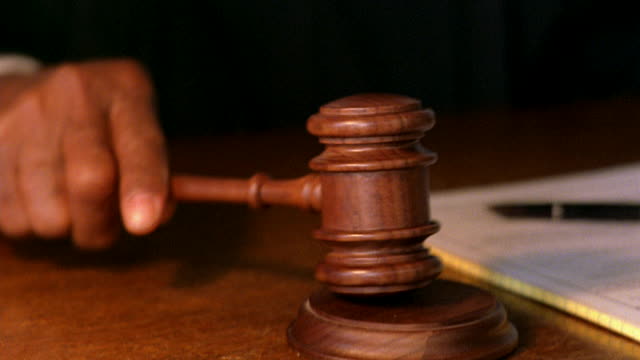
A civil rights group is suing over Alabama’s system of electing appellate judges by statewide vote, which they contend has resulted in vote dilution and yielded all-white courts despite the fact Alabama has the sixth-largest black population in the country, where one of every four people is African-American. The Lawyers’ Committee for Civil Rights Under Law (Lawyers’ Committee), filed a lawsuit on behalf of the Alabama State Conference of the NAACP and four individual black voters alleging that the method of electing Alabama’s most powerful judges violates the Voting Rights Act. The suit maintains Alabama’s statewide method of electing members of the Alabama Supreme Court, Court of Criminal Appeals, and Court of Civil Appeals deprives the African-American community of the ability to elect any judges of their choice. “In 2016, Alabama’s appellate courts are no more diverse than they were when the Voting Rights Act was signed more than 50 years ago,” said Kristen Clarke, president and executive director of the Lawyers’ Committee. “It is time for the highest courts in the state of Alabama to reflect the diversity of the communities they serve. This lawsuit seeks to provide African-American voters an equal opportunity to elect judges of their choice, achieve long-overdue compliance with the Voting Rights Act, and instill greater public confidence in the justice system of Alabama.” The Supreme Court of Alabama has nine members and is the state’s court of last resort. Alabama’s intermediate appellate courts, the Court of Criminal Appeals and the Court of Civil Appeals, each has five members. All 19 judges are elected statewide. Currently, all 19 judges are white. “The Alabama NAACP continues to fight for equitable representation of all communities in our judicial system at all levels,” said Benard Simelton, president of the Alabama NAACP. “Alabama cannot continue to have a system that ignores segments of the community. We believe that a revised method of electing judges will lead to representation of all segments of the community.” “The fact that no African-Americans are on the Alabama Supreme Court or any other office elected statewide sends a clear message that black Alabamians remain subordinate to whites in state government, just as the 1901 Constitution intended,” said James Blacksher, long-time Alabama civil rights attorney and partner in the lawsuit. In the history of Alabama, only two African-Americans have won an election to statewide office. Every other black statewide candidate has been defeated by a white candidate. Alabama’s appellate judges have been all-white for 15 years.
Terri Sewell to co-chair Congressional Voting Rights Caucus
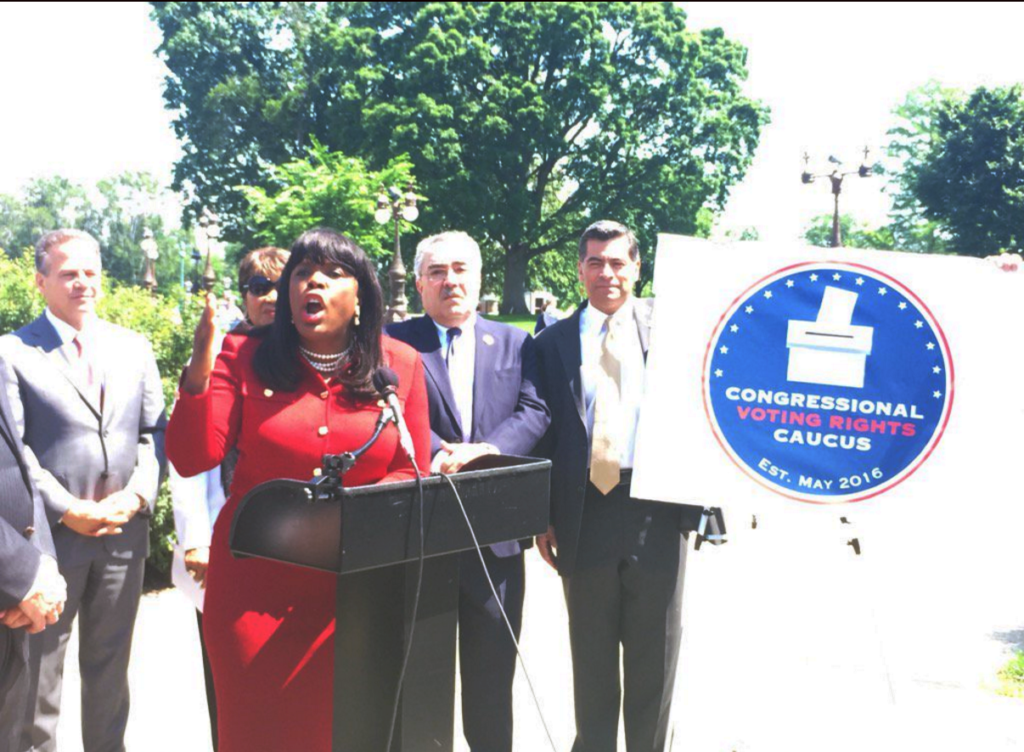
U.S. Rep. Terri Sewell, Alabama’s lone Democratic in Congress, can add another title to her already impressive resume: co-chair of the newly formed Congressional Voting Rights Caucus. Created in response to the alleged voter suppression tactics enacted by states since the Supreme Court struck down key provisions of the Voting Rights Act in its 2013 Shelby v. Holder decision, the Caucus held its first press conference Tuesday to announce its formation. According to the caucus’ website, it will work to “help educate the public about their rights as voters, advance legislation that blocks current and future suppression tactics and brainstorm creative ways to bring our election process into the 21st Century.” “A democracy means nothing w/o every American having the same access to the ballot box,” Sewell said on Facebook after the press conference. Co-chaired by Sewell and U.S. Rep. Marc Veasey of Texas, the caucus already boasts 49 members, including well-known Democratic U.S. Reps. Sheila Jackson Lee of Texas and Elijah Cummings of Maryland.
Terri Sewell, House Dems unveil “#RestoreTheVOTE” effort to protect voting rights
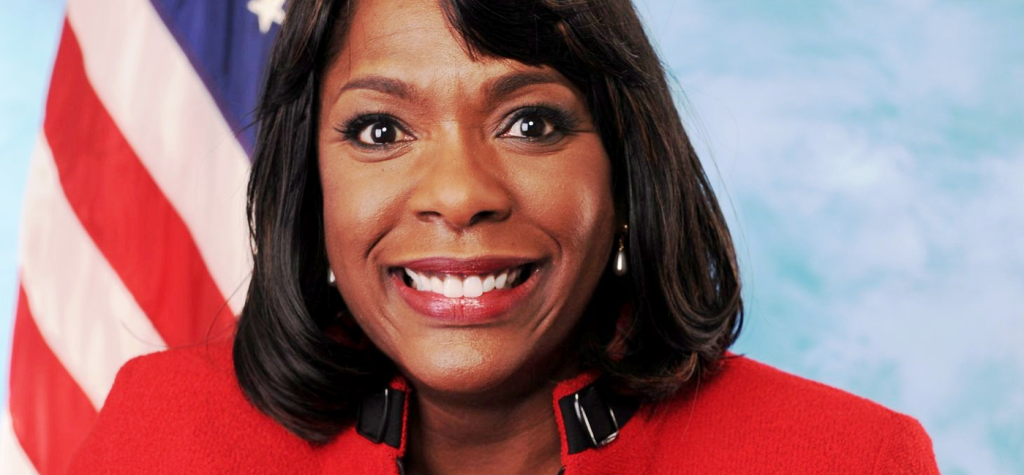
Alabama U.S. Rep. Terri Sewell joined House Minority Leader Nancy Pelosi and a handful of other congressional Democrats in announcing a new effort to “restore and advance” the 1965 Voting Rights Act, a landmark piece of Civil Rights-era legislation. The House Democrats are calling the plan “#RestoreTheV.O.T.E” short for “Restore the Voices of the Excluded.” As part of the effort, the minority caucus will declare each Tuesday when Congress is in session ““Restoration Tuesday” in order to call attention to what they consider attacks on the rights of poor, and minority Americans to vote perpetuated by Republican-led legislators and governors around the country. The move is designed to promote the Voting Rights Advancement Act, HR 2867 in the current Congress, which would restore provisions of the 1965 federal law which have been rolled back by the courts in recent years. The new bill, for example, would reinstate Civil Rights monitoring in 13 states – Alabama, Georgia, Mississippi, Texas, Louisiana, Florida, South Carolina, North Carolina, Arkansas, Arizona, California, New York and Virginia – to keep an eye out for discriminatory ballot-access laws there, and provide a “rolling formula” by which states would be cycled in and out of the program according to voting rights progress. HR 2867 would also restore so-called “preclearance” on the part of the U.S. Supreme Court, by which the high court would have the right to review any changes to voting laws in states with a history of racial discrimination in their laws. “As a daughter of Selma, I am painfully aware that the injustices suffered on the Edmund Pettus Bridge 50 years ago have not been fully vindicated,” said Sewell. “The recent decision by the State of Alabama to close 31 DMV offices in spite of the state’s photo ID law is just one example of modern day barriers to voting that would have been precluded if federal preclearance provisions were still in effect.” Sewell had previously called the decision to close auxiliary DMV offices, necessitated by statehouse budget cuts signed into law by Gov. Robert Bentley, an effort to disenfranchise rural Alabamians in a fiery letter penned last month in which she called on the federal Department of Justice to investigate the move The third-term congresswoman directly likened the closures to Jim Crow-era laws enacted by southern states in the 20th century to discourage blacks from voting. “While we no longer have to count marbles in a jar or recite the names of all the counties, there are still laws and decisions that make it harder for people to vote,” said Sewell, naming common “poll tax”-style tactics employed before passage of the Voting Rights Act. Sewell, first elected to represent Alabama’s 7th Congressional District, was first elected in 2010. She is the first African-American woman to serve in the state’s delegation.
Hillary Clinton: DMV closures “a blast from the Jim Crow past”
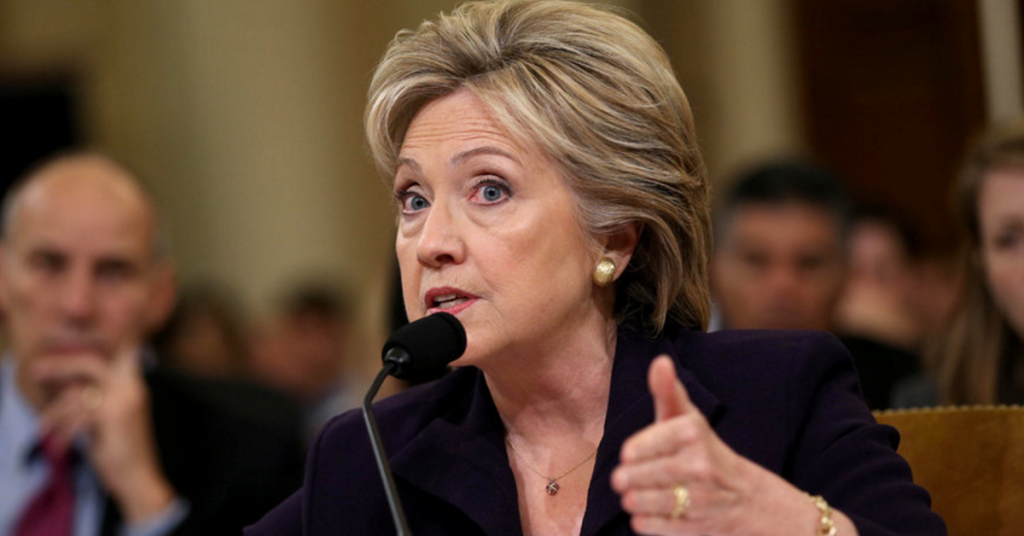
Former Secretary of State and more-or-less frontrunner for the 2016 Democratic presidential nomination Hillary Rodham Clinton stopped in Birmingham this weekend to speak at the Alabama Democratic Conference‘s semi-annual convention, yet another sign of Alabama’s growing political power in the presidential nominating process. It wasn’t all love for Clinton and Alabama when she visited the state, however: she also penned a scathing editorial wherein she accused Gov. Robert Bentley and the state Legislature of intentionally infringing upon African-Americans’ right to vote by shuttering some auxiliary DMV offices in the wake of steep budget cuts. She drew heavily upon the names and imagery of the Civil Rights Era in her Saturday op-ed piece, stopping just short of saying the decisions were racist. The closings would make getting driver’s licenses and personal identification cards much harder for many African Americans. That would make voting much harder, too. As many Alabamians have said in recent days, that’s just dead wrong. Governor Bentley is insisting that the closings had nothing to do with race, but the facts tell a different story. Fifty years after Rosa Parks sat, Dr. Martin Luther King, Jr. marched, and John Lewis bled, it’s hard to believe Americans are still forced to fight for their right to vote—especially in places where the civil rights movement fought so hard all those years ago. The parallels are inescapable: Alabama is living through a blast from the Jim Crow past. The Wellesley and Yale Law graduate also got folksy in her misive, twice employing homespun-esque metaphors to illustrate her point. Debunking what she called Gov. Bentley’s “excuses” for the DMV closures – namely limited state resources – Clinton said: It reminds me of that old saying: “You find a turtle on a fence post, it didn’t get there on its own.” Institutionalized racism doesn’t just happen. People make it happen. Taking a swipe at a handful of her Republican rivals, HRC went back to the well of colorful language in trying to substantiate her charges of racial bias on the part of GOP policymakers. Jeb Bush says he wouldn’t reauthorize the Voting Rights Act because voting conditions have improved since it was passed. As Justice Ruth Bader Ginsburg put it, that’s like throwing away your umbrella in a rainstorm because you’re not getting wet. When asked recently about voter ID laws, Marco Rubio replied, “What’s the big deal?” John Kasich restricted early voting in Ohio after the 2008 election, when 77 percent of early voters in the most populated county were African American. What part of democracy are all these candidates afraid of? Clinton unveiled a three-part plan to remedy the perceived injuries to Civil Rights in Alabama. First, Congress should put principle ahead of politics and pass the Voting Rights Advancement Act. This bipartisan bill would restore the full protections of the Voting Rights Act. Second, we should set a standard across this country of at least 20 days of early, in-person voting—including opportunities for weekend and evening voting. Third, we should enact universal, automatic voter registration, so every young person in every state is automatically registered to vote when they turn 18, unless they opt out. I applaud California for beginning to implement a similar approach last week. More states should follow their lead. Those steps are unlikely to gain traction anytime soon, as is her Democratic bid for the White House among Alabama voters. But she must be commended for stopping by.
Terri Sewell-backed plan to restore Civil Rights-era historic sites funding passes U.S. House

U.S. Rep. Terri Sewell ended her week in Congress on a sweet note — the third-term Democrat successfully amended this year’s federal Department of the Interior‘s Appropriations Bill to include an additional $7 million in funding for the department’s Civil Rights Initiative, which funds the restoration and maintenance of historic sites and markers related to the era. “National treasures like the Selma to Montgomery National Historic Trail, the Little Rock Central High School National Historic Site, and the Martin Luther King, Jr. National Historic Site tell the story of the struggle for civil rights. It is our obligation to preserve these sites for future generations,” said Sewell, the first African-American woman to represent Alabama in Washington, in a statement. The overall appropriation given to the initiative — $16.5 million including the funds in Sewell’s amendment — still falls considerably short of the $40 million requested by President Barack Obama. “Reduced funding severely limits our ability to protect sites that belong to the National Register of Historic Places and National Historic Landmarks,” continued Sewell before enumerating her amendment’s effects. Per a release, her budget amendment: Restores $2.5 million for the rehabilitation and preservation of significant historic properties on the campuses of Historically Black Colleges and Universities, Increases funding by $2.5 million for documenting and preserving civil rights history, and Increases funding by $2 million for competitive grants for underserved communities under the Historic Preservation Fund. Sewell said she was glad of the progress the House made in its budget for Civil Rights sites, but said there was much more to be done. “On the 50th Anniversary of the Voting Rights Act, we should be investing in National Park Service sites associated with the Civil Rights Movement, not cutting necessary funding,” Sewell concluded. Sewell, was born in Selma, represents Alabama’s 6th Congressional District, including much of the state’s “Black Belt” and parts of Birmingham, Montgomery and Tuscaloosa. She is the state delegation’s sole Democrat.


